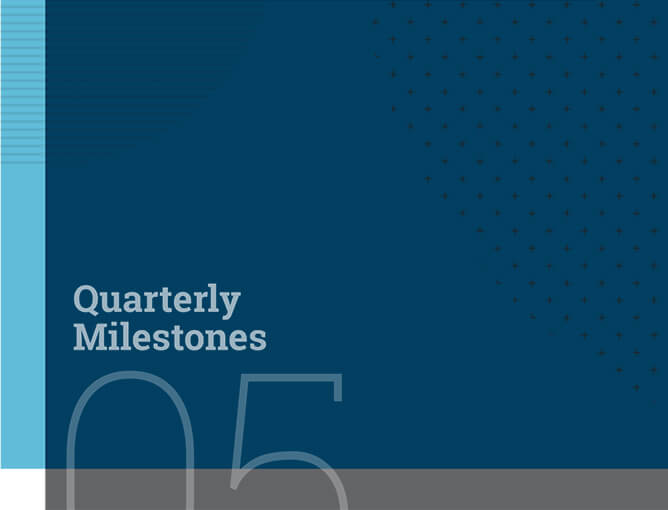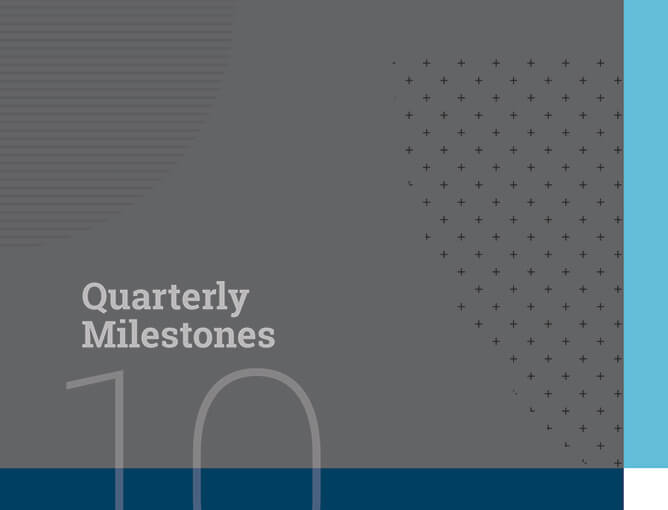
Richa ChoudharyPartner

Avanti KaleCounsel

Maitreya RajurkarSenior Associate
Key Developments
-
Disclosure requirements for public issue and private placement of non-convertible securities aligned
To align the disclosure requirements for public issue and private placement of non-convertible securities, the Securities and Exchange Board of India (SEBI) amended the SEBI (Issue and Listing of Non-Convertible Securities), 2021 (NCS Regulations) on 6 July 2023, providing a common framework under Schedule I thereof.
Key changes introduced through these amendments are:
- Disclosure of financials: Annual audited standalone and consolidated financials for the past three years and stub period in the offer documents, along with limited review financial results for the stub period (for listed entities), must be disclosed.
- Filing general information document and key information document: A general information document (GID) comprising an all-encompassing issue limit must be filed for private placement of non-convertible securities. Further, a key information document (KID) containing salient features of the issue must be filed for subsequent offers of non-convertible securities thereunder. The KID will be valid for one year from the first offer opening date of the GID. Any private placement within this validity period may be made by filing a KID for each subsequent issuance. A key point to note is that even if an issuer has filed a shelf prospectus for public issue, it can be used as a GID for a private placement under the validity period.
- Disclosure of expenses incurred in the issue: Expenses incurred in the issue, in absolute terms and as a percentage of total issue expenses, which generally include fees and commission of all intermediaries, legal advisors, marketing expenses, and listing fees payable to the stock exchanges must be disclosed. However, details of how these expenses need to be disaggregated in the disclosure are still being analysed by the regulator.
- Concept of ‘senior management’: The amendments introduce the concept of ‘senior management’ and prescribe certain disclosures in relation to them, in addition to the disclosure of names and certain details of key managerial personnel.
-
Mandatory listing of non-convertible debt securities by listed entities
Entities that have listed non-convertible debt securities (NCD) outstanding after 1 January 2024 and that propose to issue NCDs thereafter are now required by SEBI to undertake only listed issuances for such NCDs, subject to certain exceptions and conditions. The SEBI (Listing Obligations and Disclosure Requirements) Regulations, 2015 (Listing Regulations) have also been amended on 19 September 2023 to give effect to this requirement.
Operational aspects of the transition from unlisted NCDs to listed NCDs are unclear at this stage. Clarification will be required from SEBI, stock exchanges, and depositories to facilitate such listing uniformly, particularly since all listed NCDs above a prescribed threshold must be issued through the electronic bidding platform.
(To read our detailed update on these amendments, click here.)
-
Mandatory disclosure of material agreements by listed entities
On 14 June 2023, SEBI had amended the Listing Regulations, requiring listed entities to disclose details of agreements entered into by shareholders, promoters, promoter group entities, related parties, directors, key managerial personnel and employees of listed entities or of its holding, subsidiary and associate companies, even where the issuer company was not a party to such agreements. Subsequently, on 13 July 2023, SEBI issued a circular listing the disclosure requirements for specific types of agreements, as mentioned below.
Sr. No. Category of Agreement Details to be disclosed (i) Agreements related to acquisitions and schemes of arrangements (mergers, demergers, restructuring, etc.) Name of the target entity, size, turnover, cost and price of acquisition of shares, objects and impact of the acquisition, percentage of shareholding and control of the target entity acquired, rationale for the corporate action, government and other approvals required, indicative timeline for completion and if the acquisition falls within the ambit of related party transaction, etc. (ii) Agreements related to issuance, forfeiture, split, consolidation and buyback of securities Type and rationale of issuance of securities, names of investors (in case of preferential issues), default in payment of interest, principal amount or coupon rate (in case of debt issues), etc. (iii) Agreements impacting management and control of the listed entity (shareholders’ agreements, joint venture agreements, family settlement agreements, etc.) Names and purpose of the agreements, entitlement to special rights (i.e., co-sale rights, board nomination rights, anti-dilution rights), conflict of interest, and if the said agreement falls within the ambit of related party transactions, and details of termination and amendment agreements, etc. Additionally, listed entities must disclose details of fraud or defaults by listed entities and their promoters, directors, key managerial personnel, members of senior management, subsidiaries or arrest of key managerial personnel, members of senior management, promoters, and directors, whether in India or abroad.
-
Reduction in the timeline for listing of shares pursuant to a public issue
Previously, listing of shares in a public issue had to be completed within six working days (T+6) from the day of closing of the issue (T Day). To expedite listing and access to trading, SEBI, by way of a circular dated 9 August 2023, has reduced this timeline from T+6 days to T+3 days, i.e., the listing must now be completed within three working days from the day of closing of the issue.
This reduced timeline is voluntary from 1 September 2023 and mandatory from 1 December 2023. However, most recent initial public offerings have opted for a T+3 listing voluntarily, which also appears to be the present expectation from SEBI.
-
Amendments to frameworks for Real Estate Investment Trusts and Infrastructure Investment Trusts
SEBI amended the SEBI (Infrastructure Investment Trusts) Regulations, 2014 and the SEBI (Real Estate Investment Trusts) Regulations, 2014 on 16 August 2023. These amendments aim to clarify various aspects of the Real Estate Investment Trust (REIT) and the Infrastructure Investment Trust (InvIT) framework, discussed below.
Subsequently, SEBI also issued a circular on 11 September 2023 (Circular) to lay down the framework for the board nomination rights of unit holders, provided through the amendments.
The key changes to the REIT and InVIT framework are:
-
Right to appoint nominee director
Unitholders holding not less than 10% of the total outstanding units of the REIT or InvIT, individually or collectively, may nominate one director on the board of directors of the investment manager or manager to the REIT or InvIT. This clarifies unit holder rights and affords them additional protection for their investments.
One of the key conditions of the Circular is that such unitholders must comply with a stewardship code, which has not yet been formulated.
-
Introduction of sponsor group for Infrastructure Investment Trusts
The concept of a ‘sponsor group’ has also been introduced for InvITs, which was thus far only applicable to REITs.
In the context of an InvIT, ‘sponsor group’ has been defined as the sponsor and any entity or persons controlled by the sponsor or controlling the sponsor and any other entities or persons that share common control. InvITs should take note of increased disclosure requirements in this context and reevaluate the constitution of their respective sponsor groups.
-
De-classification of sponsors
The former route for de-classification of sponsors, which set out various conditions, including a unit holding limit of 10% for such sponsor and its associates and a minimum listing period of three years for the InvIT, has now been removed, as InvIT Regulations already provided a regulatory framework for a change in sponsor/inducted sponsor/change in control of the sponsor.
Now, while there is no condition for de-classification, change in sponsor will require approval from 75% of the unit holders by value, excluding the value of units held by parties related to the transaction. However, the sponsor is obliged to provide an exit to dissenting unitholders.
-
Introduction of a self-sponsored investment manager
The concept of a self-sponsored investment manager, which will fulfil the dual responsibilities of the investment manager and the sponsor, has been introduced, providing a new mechanism for structuring InVITs and REITs.
-
Lock-in of shareholding of sponsor and sponsor group
SEBI has now introduced a perpetual lock-in for the sponsor and sponsor group and introduced lock-in requirements which decrease over a period of time:
Sr. No. Lock - in requirements Lock - in requirements (i) 15% of the total outstanding units Three years from the date of listing of units (Listing Date) (ii) 5% of the total outstanding units* Beginning of the third year till the end of the fifth year from the Listing Date (iii) 3% of the total outstanding units Beginning of the sixth year till the end of the tenth year from the Listing Date (iv) 2% of the total outstanding units Beginning of the 11th till the end of the 20th year from Listing Date (v) 1% of the total outstanding units* 20th year onwards from Listing Date *Maximum value of locked-in unit capital is capped at INR 500 crores. Accordingly, the units locked-in will be equivalent to the applicable % threshold or INR 500 crores, whichever is lower.
An additional benefit is that the 15% unit capital, which is locked-in for three years and could previously be held only by the sponsor, can now be held collectively by the sponsor and sponsor group.
-












